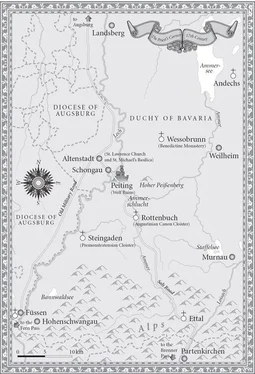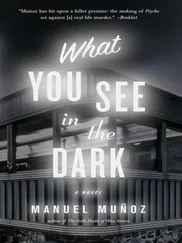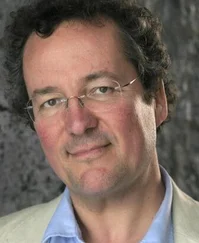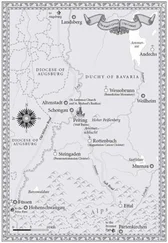Oliver Potzsch - The Dark Monk
Здесь есть возможность читать онлайн «Oliver Potzsch - The Dark Monk» весь текст электронной книги совершенно бесплатно (целиком полную версию без сокращений). В некоторых случаях можно слушать аудио, скачать через торрент в формате fb2 и присутствует краткое содержание. Жанр: Исторический детектив, на английском языке. Описание произведения, (предисловие) а так же отзывы посетителей доступны на портале библиотеки ЛибКат.
- Название:The Dark Monk
- Автор:
- Жанр:
- Год:неизвестен
- ISBN:нет данных
- Рейтинг книги:5 / 5. Голосов: 1
-
Избранное:Добавить в избранное
- Отзывы:
-
Ваша оценка:
- 100
- 1
- 2
- 3
- 4
- 5
The Dark Monk: краткое содержание, описание и аннотация
Предлагаем к чтению аннотацию, описание, краткое содержание или предисловие (зависит от того, что написал сам автор книги «The Dark Monk»). Если вы не нашли необходимую информацию о книге — напишите в комментариях, мы постараемся отыскать её.
The Dark Monk — читать онлайн бесплатно полную книгу (весь текст) целиком
Ниже представлен текст книги, разбитый по страницам. Система сохранения места последней прочитанной страницы, позволяет с удобством читать онлайн бесплатно книгу «The Dark Monk», без необходимости каждый раз заново искать на чём Вы остановились. Поставьте закладку, и сможете в любой момент перейти на страницу, на которой закончили чтение.
Интервал:
Закладка:
He put his hand on her shoulder and guided her into the warm house. A fire rumbled softly in a tile stove, and some leftovers from supper were still on the table: roast pheasant, a half wheel of cheese, and a sliced leg of ham, alongside a pitcher of wine and a plate of sliced white bread. Magdalena felt her mouth water, reminding her she had eaten nothing substantial since the night before. Philipp Hartmann noticed her gaze and gestured for her to sit down. “Come and eat; it’s too much for one person.”
Magdalena sat down to eat. The bread was still warm, and the fine, white pheasant leg delicious. It was like Easter and a church fair combined. The Kuisls could afford a meal like this only when there were a lot of executions-and even then, only when the pay was good. Philipp Hartmann looked at her, impressed with her beauty, but kept his silence.
Suddenly, footsteps could be heard on the stairs, the door squeaked, and a little girl peeked in. She was about five years old, wore a nightshirt, and had reddish-blonde pigtails.
“Go back upstairs, Barbara,” the hangman said. “We have company. Magdalena will certainly stay overnight, so you can play with her tomorrow morning.” He smiled, a facial expression that clearly did not come naturally to him. “Perhaps she’ll even stay longer.”
Magdalena swallowed the rest of the pheasant, but suddenly the meat had lost its taste and seemed dry. The little girl nodded, scrutinized the hangman’s daughter from head to toe again, and then disappeared up the stairs.
“You can have more, if you like,” Philipp Hartmann said, pouring her another cup of wine. “I’ve also got some nuts and other delicacies. We’re not hurting for money.”
Magdalena shook her head in wonderment and admired the whitewashed walls, the brightly polished copper kettles, and the enameled pitchers and plates. Philipp Hartmann’s wife had died more than a year ago, and still, the house was in remarkably good condition. The reeds and straw on the floor smelled fresh, and Magdalena couldn’t find a single cobweb anywhere. In the devotional corner, an oil painting of the Madonna, which looked as if it had just been framed, hung next to a polished executioner’s sword. Beneath this, fresh linen and colorful clothes were stacked on the brass-studded cover of a walnut chest. Magdalena nodded to herself. Her father had been right; the Augsburg hangman would, in fact, be a great match for a girl, but even in her wildest dreams, she couldn’t even consider marrying him.
Philipp Hartmann sat down next to her, poured himself a cup of wine, and raised his glass to her. “And now tell me what you’re doing in Augsburg at this time of year. Actually, it’s the man who is supposed to be the suitor and pay a visit to his intended-or do you do things differently in Schongau?” Again, he tried to smile.
“It’s…not exactly what you think,” Magdalena began hesitantly. It was wrong for her to come here; she knew that. She was leading him on by coming here, but what other choice did she have? Even as far away as Schongau, people knew the Augsburg hangman’s wife had died of consumption the year before. Since that time, Philipp Hartmann had been looking for a new wife and a good mother for his little girl, Barbara. The only possible match for him as a hangman was the daughter of a butcher or a hangman.
Three months had passed since Philipp Hartmann had paid a visit to the Kuisls in order to get to know Magdalena a little better. The men had quickly come to an agreement, and her father had described the life of the Augsburg hangman’s wife to her in glowing colors. In contrast to the Schongau hangman, Philipp Hartmann was well-to-do. Admittedly, he was also a so-called dishonorable man whom people avoided, but with hard work and ambition, Hartmann had made a name for himself in recent years. He was viewed not just as an experienced hangman, but as an excellent healer who was consulted by well-off citizens as well as the simple people. Workers, merchants’ daughters, and patricians all came to him for treatment and they all left behind decent sums of money.
For hours her father had tried to reason with her, tried to explain she would never be allowed to marry Simon and that all she would achieve would be mockery and, in the worst case, banishment from town. But in the end, all his arguments were in vain and Philipp Hartmann finally left empty-handed, taking his dowry in a safely guarded little chest back to Augsburg with him.
And now Magdalena was here at his house, eating his food and asking for a place to stay the night. She felt dirty and wrong, and only slowly and hesitantly did she tell him what had happened to her.
The hangman listened to her silently, and when she finished, he said, “So it isn’t a suitor’s visit, after all…”
He paused for a moment. Magdalena had a heavy feeling in her stomach.
“Well, be that as it may”-he stood up to stir the fire-“your money is, in any case, gone,” he called back to her. “I know the two guys. Bad apples. I’ve put them in the stocks a couple of times and whipped them in public, too. They actually were banished from town some time ago and shouldn’t be here. I poked out the eye of the big fat fellow because he came back to Augsburg, and if I catch them again, I’ll string them up.” He returned to the room and wiped his large sooty hands on a fine white towel. “Now, what were you supposed to get for your father and the midwife?”
Magdalena, who’d always had a strong memory, recited the individual herbs and other ingredients. The hangman nodded, thought for a moment, then replied, “I have melissa, sundew, and most of the other herbs right here. You can get ergot in the apothecary.”
“But I have no money!” Magdalena wailed, burying her face in her hands. “Twenty guilders-where can I get all that money?”
Philipp Hartmann hesitated, then walked over to a chest in the corner and opened it with a key from a chain on his belt. Magdalena listened to the clinking, and when the hangman returned and opened his hand, ten shiny guilders rolled across the table toward her.
“You’ll need this for the apothecary,” Hartmann said. “The rest you can get from me.”
Magdalena looked at him in disbelief. “But…” she started to stay.
Something else rolled across the table toward her-a black, shining ball the size of a child’s fist made from a strange material she had never seen before. She held it in her hand and could hear something rattle inside.
“A bezoar,” the hangman said. “If you ask me, a useless magic thing for superstitious wives. You can keep it; I have no use for it anymore, in any case.”
“I’ll never be able to pay you back,” Magdalena whispered.
The hangman shrugged. “I could give you fifty times as much as a dowry. I’m not a poor church mouse like your father. In a few years, I’ll be able to purchase my citizenship rights, and who knows…” He tried to put on a cheerful face, but his face twisted into a grimace. “Perhaps you’ll think it over some more. I’m not a bad catch, and Barbara urgently needs a mother.” He stood up and walked to the door. “You can sleep here in the main room on the bench. Go to the apothecary tomorrow and then have a look around Augsburg. You’ll see that it’s a not a bad place to live.”
As Magdalena listened to his heavy footsteps going back up the stairs, her stomach sank. She felt as if she had swallowed the bezoar.
The wagon driver lay on a bed of straw and screamed like a stuck pig. Startled, Bonifaz Fronwieser, who had just been tapping his abdomen, withdrew his hand.
“Hmm, so this is where it hurts,” the older physician said, looking at his son apprehensively. Anton Steingadener’s wife knelt alongside the two doctors, wiping sweat from her husband’s brow with one hand, fingering a rosary in the other. Just an hour ago, the elderly couple had arrived at Fronwieser’s house, where several patients had been waiting since noon. Most were suffering from the fever that had been going around Schongau for weeks, but this case, Simon thought, looked even more serious, if that were possible. He was already certain that it was hopeless.
Читать дальшеИнтервал:
Закладка:
Похожие книги на «The Dark Monk»
Представляем Вашему вниманию похожие книги на «The Dark Monk» списком для выбора. Мы отобрали схожую по названию и смыслу литературу в надежде предоставить читателям больше вариантов отыскать новые, интересные, ещё непрочитанные произведения.
Обсуждение, отзывы о книге «The Dark Monk» и просто собственные мнения читателей. Оставьте ваши комментарии, напишите, что Вы думаете о произведении, его смысле или главных героях. Укажите что конкретно понравилось, а что нет, и почему Вы так считаете.












